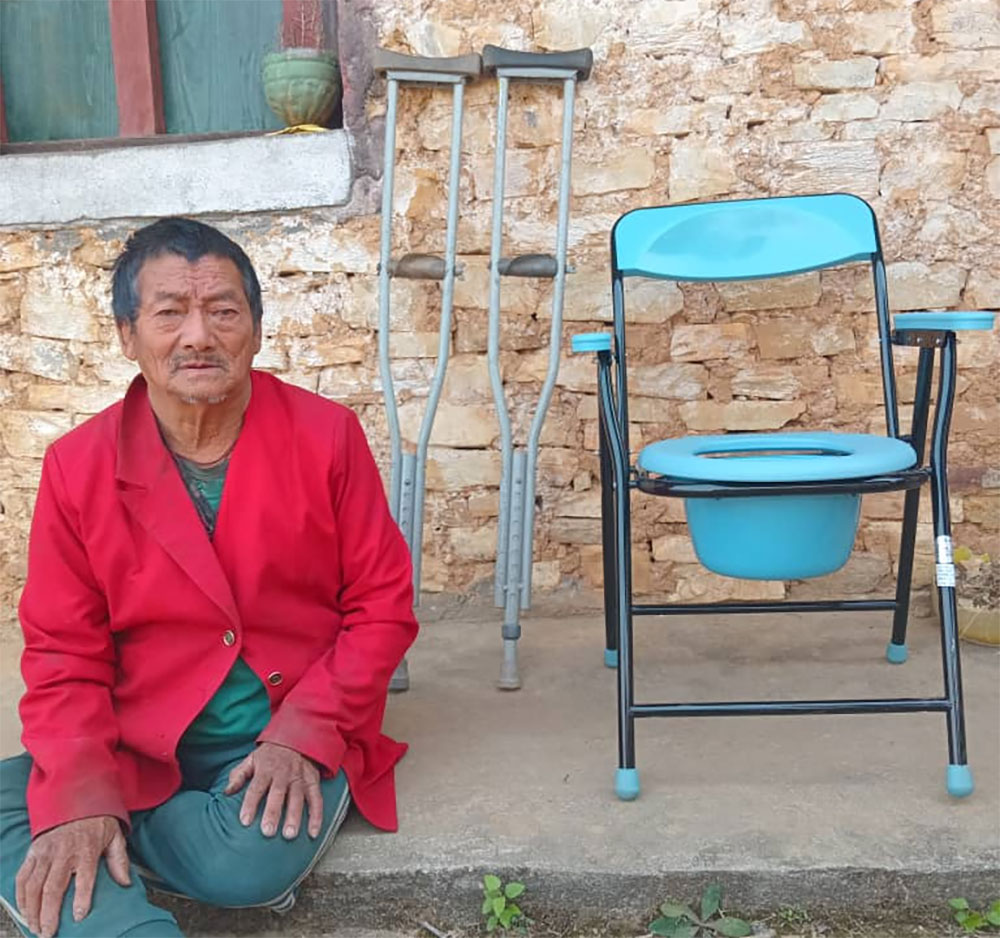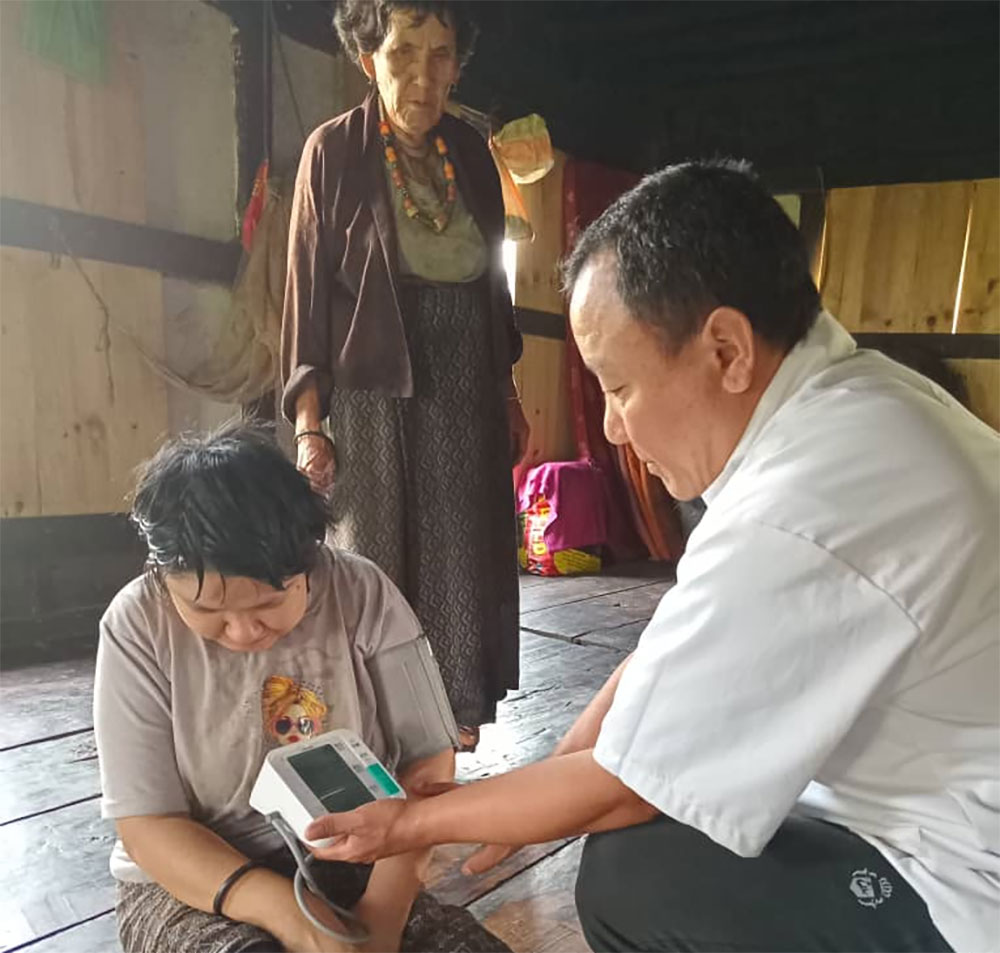Thanks to the transformative leadership training provided by SNV Bhutan, local leaders in Trashigang are transforming governance to address the needs of all residents, regardless of gender or ability
Neten Dorji
Trashigang— Dorji Tsering, the 40-year-old Gup of Udzorong gewog, is championing a new era of inclusive leadership in his community. Drawing on leadership training from SNV Bhutan, which emphasised Gender Equality, Disability, and Social Inclusion (GEDSI), he has radically shifted his approach to governance.
This year, he has shifted his focus from traditional governance to ensuring that all community members—especially the most marginalised—are included in the planning and consultation eprocesses.

He is also actively mentoring his team, including Mangmi and Tshogpa, to adopt inclusive decision-making, stressing that leadership is about action, advocacy, and guiding others toward positive change.
“Before, I never considered inclusive planning,” Dorji Tsering said. “But the GEDSI training helped me understand the roots of gender inequality and the importance of inclusion. Now, I make sure that everyone’s needs are considered in every decision.”
His efforts have already had tangible impacts in Udzorong, particularly in improving sanitation. Through his leadership, the gewog has achieved 100 percent flush toilet coverage, with special provisions for persons with disabilities (PWDs).
Voices of change
The effects of these changes are evident in the testimonies of local residents.
Jigme Choden, a 42-year-old from Jomtshang village, shared how the awareness raised by local advocates has helped her better understand the needs of PWDs.
“I didn’t know much about the specific needs of PWDs when it came to WASH services,” she said. “But the Disability Inclusive Development training and SNV’s initiatives made me realise how crucial it is to treat everyone equally.”
The idea of including PWDs came through the process of forming Self Help Groups (SHG) of PWDs. “I am also the leader of our SHG in Udzorong.”
Seventy-year-old Dralha from Mongyoe, who is a person with physical disability, said that local leaders and health workers now give priority to PWDs.
“Before, I had to pay Nu 2,500 a month for taxi fares just to get to the hospital. Now, health workers come directly to our homes, which is such a relief for people like me who can’t walk,” he said.
Elderly community members also benefit from the improved services.
Taomo, 83, explained her challenges with mobility, but noted that the new accessible facilities at the local health centre made it easier for her to use a wheelchair.
Health services make strides
One of the most significant improvements has been in health services. Through a collaboration of local leaders and health workers, specialised toilets have been constructed for elderly individuals, pregnant women, and PWDs, particularly at the Udzorong Primary Health Centre.
Karma Phuntsho, health assistant at the centre, explained that the initiative was funded through generous donations from NGOs and local supporters.
“With SNV’s support, we have built six new toilets, and we have also constructed three home-based toilets for individuals with paralysis,” he said. “We are now offering more inclusive care, including monthly check-ups and door-to-door health services for those unable to travel.”
An example of the shift in healthcare service is how Karma Phuntsho was able to help an individual with mental health issues.
“The boy had been neglected for years, with no access to proper medical care. After attending the training, I was able to consult a specialist, and today he’s receiving treatment, and improving,” Karma Phuntsho said.
In addition to healthcare, infrastructure changes are underway to make the health centre more accessible to PWDs, including the installation of ramps and specialised toilets.
Currently, 20 people with disabilities are benefiting from these facilities.
Social change in the highlands
Across the mountains in Sakteng gewog, similar shifts are taking place. Local leaders and community members have united to build a shelter and toilet for a 90-year-old woman, demonstrating the growing commitment to inclusivity.
Sakteng Gup Tshewang Tshering has been actively working to involve more women in decision-making. Traditionally, men held most leadership roles in the community, but the gewog now reports that about 60 percent of women are regularly participating in community meetings.
Rinchen Khandu, the Passu-Tengma Tshogpa, is another local leader inspired by the GEDSI training. “Before the training, we only invited the heads of households—usually the men—to public consultations,” he explained. “Now, I actively invite women, youth, the elderly, and persons with disabilities to ensure that all voices are heard.”
Shifting norms in highland communities is a challange, as various factors shape decision-making at both the household and community levels. For example, men typically serve as heads of households and are the primary decision-makers within families.
“Men often believe they should be the decision-makers, but what I am advocating now is that women’s voices must also be included,” said Rinchen Khandu.
He said that he ensured the needs of a person with disabilities were considered, which had been excluded in the past.
Sangay Dema, 40, said that the leadership training helped her understand the importance of women’s participation in public meetings. “I encourage both women and men in my village to speak up at every community meetings, including during cleaning campaigns, so that our voices are equally heard,” she said.
Engineering for inclusivity
At the dzongkhag level, Sherub Singye, the chief engineer, is leading the way in incorporating inclusive design into public infrastructure. After attending the transformative leadership training, he recognised the need for accessible public spaces.
“For years, we never thought about inclusivity in infrastructure,” he said. “Now, we are making sure that every design accounts for the needs of people with disabilities and women.”
He has also trained 14 engineers and 13 water technicians to incorporate inclusive designs into their projects.
This shift is already visible in ongoing projects, including plans for accessible public toilets in Sakteng, which, if successful, could be expanded to all 14 gewogs in Trashigang.
“We are committed to making all public facilities more accessible for PWDs and women,” said engineer Chenga Dorji. “For example, we are planning to redesign public toilets with shorter water taps and softer handles to ensure everyone can use them.”
The integration of GEDSI principles into infrastructure design aligns with Bhutan’s broader goals for sustainable development, including achieving Sustainable Development Goal 7: Gender equality and empowerment.
According to the latest National Health Survey, Trashigang Dzongkhag is home to approximately 2,753 people with disabilities, underscoring the importance of continued progress toward inclusivity.
With strong leadership and the support of communities, Trashigang is becoming a model for inclusive development that other regions may look to as an example.
This story is produced in collaboration with SNV Bhutan with support from the Royal Government of Bhutan; Department of Foreign Affairs and Trade, Australian Government; and the Water for Women Fund.


